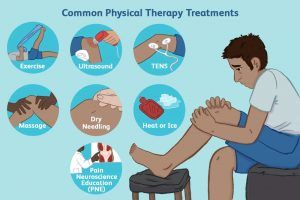Functional Medicine
Services
FUNCTIONAL NUTRITION
Julie Lavergne, PT
In many cases, simple lifestyle and nutritional changes can uncover the root cause of your chronic pain and chronic illness. Julie Lavergne, PT uses Functional Medicine and Ancestral Dietary changes to help you manage lifestyle-related musculoskeletal, metabolic, and auto-immune health issues.
Julie Lavergne, PT holds the designation of ADAPT Trained Practitioner from Kresser Institute, the only Functional Medicine and Ancestral Health training company.
Functional Nutrition
(318) 704-6568

“We began the Functional Medicine journey to assist our patients receiving Physical Therapy to have more successful outcomes with their rehabilitation program. Now we have patients who just want to feel better, sleep better, and take fewer medications.”
JULIE LAVERGNE, PT
AVAILABLE SERVICES

Chronic pain is any discomfort or unpleasant sensation that lasts for more than 3 months – or beyond an expected normal healing time. Often, those who have chronic pain believe they have an ongoing disease or that their body has not healed, when this may not be the case. Chronic pain is likely not warning you of possible injury or danger; instead, the pain centers in the brain may be causing you to hurt even though there are no new causes of pain occurring in the body. Anyone can develop chronic pain, at any age.
Your physical therapist will work with you to educate you on chronic pain, find solutions to improve your quality of life, and get you moving again! He or she will help you improve movement, teach you pain management strategies, and, in many cases, reduce your pain.
Not all chronic pain is the same. Your therapist will evaluate your clinical examination and test results and design an individualized treatment plan that fits you best.
COMMON SYMPTOMS
- Fearfulness
- Body Stiffness
- Deconditioning
- Decreased Circulation
- Weight Gain and/or a Worsening of Other Conditions
- Increased use of Medication
Each person experiences stress in his or her daily life, whether it is from work or personal life. Some stress is good, but chronic levels of stress can lead to detrimental effects on our bodies involving the musculoskeletal system, nervous system, cardiovascular system, gastrointestinal system, and reproductive system. Physical therapy can help with more than pain management; therapists can offer techniques to assist in decreasing chronic stress levels and add balance back into the body.
Stress is the body’s reaction to harmful situations — whether they’re real or perceived. When you feel threatened, a chemical reaction occurs in your body that allows you to act in a way to prevent injury. This reaction is known as “fight-or-flight,” or the stress response. During stress response, your heart rate increases, breathing quickens, muscles tighten, and blood pressure rises. You’ve gotten ready to act. It is how you protect yourself.
COMMON SYMPTOMS
- Easily Agitated & Moody
- Feeling Overwhelmed
- Low Energy
- Headaches
- Aches, Pains, and Tense Muscles
- Insomnia
- Constant Worrying
- Racing Thoughts
- Forgetfulness and Disorganization
- Inability to Focus
- Poor Judgment
- Chest Pain and Rapid Heartbeat
Good sleep is necessary for optimal health and can affect hormone levels, mood and weight. Sleep problems, including snoring, sleep apnea, insomnia, sleep deprivation, and restless legs syndrome, are common.
Whether you have occasional trouble sleeping or you’re living with a sleep disorder, you can get quality sleep and learn to better manage your condition.
Common digestive problems include heartburn/GERD, IBD, and IBS. Symptoms may include bloating, diarrhea, gas, stomach pain, and stomach cramps.
Treatment includes a combination of medication and lifestyle changes.
COMMON SYMPTOMS
- Diarrhea
- Liver Disease
- Diverticulitis Diet
- Gallstones
- Ulcers
- Blood in Stool
- Pancreatitis
- Probiotics
- Diverticulitis
- Appendicitis
- Gastritis
- Hemorrhoids
Type 2 Diabetes
Diabetes is the body becoming resistant to absorbing insulin into the cells, this causes your body to be unable to absorb sugar properly. When your body can no longer process insulin you begin to suffer from high blood sugar. The unprocessed sugar in your body is what brings on most of the symptoms you experience, as your body begins to get its energy from other sources by essentially consuming itself.
One of the most dangerous aspects of type 2 diabetes is that you may not know that you are suffering from it. You could have it for years and be unaware. The symptoms are slow developing and mostly unassuming. You should be looking out for increased thirst, and subsequently very frequent urination.
Type 2 diabetes can be brought on by age, excessive weight, or be a genetic issue passed down from your family. The onset age for type 2 diabetes is on average 45 years. Excessive eating is one of the most common causes of type 2 diabetes, and can be regulated by healthy eating, exercising, and help from a medical professional.
COMMON SYMPTOMS
- Frequent urination
- Increased thirst
- Fatigue, tiredness
- Sudden weight loss
- Itching around the genitals
- Slow healing cuts or wounds
- Blurred vision

Fibromyalgia is the second most common condition affecting your bones and muscles. Yet it’s often misdiagnosed and misunderstood. Its classic symptoms are widespread muscle and joint pain and fatigue.There’s no cure. But a combination of medication, exercise, managing your stress, and healthy habits may ease your symptoms enough that you can live a normal, active life.
COMMON SYMPTOMS
- Muscle Pain, Burning, Twitching, or Tightness
- Low Pain Threshold or Tender Points
- Draining Fatigue
- Trouble Concentrating and Remembering (Fibro Fog)
- Insomnia or Not Sleeping Well
- Feeling Nervous, Worried, or Depressed
- Numbness or Tingling in Your Face, Arms, Hands, Legs, or Feet
- Belly Pain, Bloating, Queasiness, Constipation, and Diarrhea (Irritable Bowel Syndrome)
- Headaches
- Dry Mouth, Nose, and Eyes
- Sensitivity to Cold, Heat, Light, or Sound
- Frequent Urination
Physical therapists can help people who are obese to be more physically active and fit by teaching them to exercise in pain free and fun ways. The right exercise is very important because it helps burn calories, get rid of fat, preserve muscle tissue, and protect your joints. When you start a fun exercise routine, it also helps you make better choices about your diet.
Your physical therapist will work with you to design a specific treatment program to address your needs, including exercises you can do at home. Aerobic exercise and strength training will likely be included in your program, as they both help in weight loss and weight control. Physical therapists are trained to create safe, effective physical activity programs for people of all ages and abilities, taking into account the Centers for Disease Control and Prevention physical activity recommendations for children and adults.
Physical therapists can also help individuals address any underlying reasons for their unhealthy behaviors; they are trained to identify any barriers to developing healthy habits, setting individual goals, and sticking to the program.
BENEFITS
- Reduce Pain
- Improve Cardiovascular Fitness
- Improve Strength
- Improve Movement
- Improve Flexibility and Posture
- Increase Activity Levels
An autoimmune disorder develops when your white blood cells—those that fight infection and disease—start attacking normal, healthy tissue.
Physical therapy can help some autoimmune disorders, according to the American Autoimmune Related Diseases Association:
● Rheumatoid arthritis (RA): This occurs when the immune system attacks the joints, causing swelling, stiffness, and pain. RA is normally seen in middle-aged or elderly people, but it can also affect the younger set. Exercise helps by strengthening and improving function, according to research journal Physical Therapy.
● Multiple sclerosis (MS): With MS, the immune system attacks certain parts of the central nervous system. This can lead to muscle weakness, balance problems, and issues with coordination.
● Lupus: One of the more commonly known autoimmune diseases, lupus is characterized by inflammation of various parts of the body. It can be mild, causing only minor inconveniences, or life-threatening. A guided exercise routine can help in improving physical and mental health, according to the Lupus Foundation of America.
Unlike a broken bone or muscle injury, physical therapy patients who have autoimmune disorders may require ongoing therapy.
COMMON SYMPTOMS
- Fatigue
- Achy Muscles
- Swelling and Redness
- Low-Grade Fever
- Trouble Concentrating
- Numbness and Tingling in the Hands and Feet
- Hair Loss
- Skin Rashes
Chronic fatigue syndrome is a condition categorized by generalized fatigue that persists for 6 months or longer, and is more intense than would be expected based on the effort a person regularly exerts. Although science has yet to yield a full understanding of the underlying cause(s) of CFS, many researchers suspect impairments of the aerobic energy, immune system, and gastrointestinal systems may be responsible for the functional impairment experienced in individuals with this condition.
Your physical therapist will work with you to develop a treatment plan to help ease your discomfort and improve your ability to perform daily activities.
Because fatigue, pain, and weakness are all associated with CFS, physical therapist treatment will likely focus on improving short-term endurance and strength. Your physical therapist may also check for other conditions, such as depression and may refer you to other specialists for co-management of your symptoms.
COMMON SYMPTOMS
- Fatigue
- Generalized Pain
- Frequent Headaches
- Muscle Weakness
- Cloudy Thoughts and Confusion
- Disturbed Sleep
- Flu-like Symptoms
- Unrefreshing Sleep
CONSULT A PROFESSIONAL, TODAY
We'll Help You Get Your Life Back
Our expert team of Doctors, Nurse Practitioners, and Physical Therapists will assist you in multiple different areas of your life.
We can help you with managing your daily stress to improve your sleep and reduct the strain upon your body. We can guide and advise you on your diet and nutritional needs to assist you in living a longer, healthier & happier life!
Complete this short form with any questions you may have, and someone from our team will get in touch with you soon.
